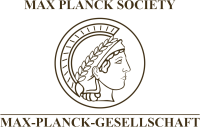former Evolutionary Economics Group
- #9606
- R. H. Day
- Macroeconomic Evolution: Long Run Development and Short Run Policy
- #9605
- U. Witt
- Imagination and Leadership - The Neglected Dimension of the (Evolutionary) Theory of the Firm
published in: Journal of Economic Behavior and Organization, 1998, Vol. 35, pp. 161 - 177.
- #9604
- B. Flieth, G. v. Wangenheim
- Interactive Opinion Formation In a Multi-Opinion Model
We model incompletely informed individuals who adopt their opinion from a range of two or more opinions. Probabilities of adoption depend on information provided by other individuals, hence on the current shares of opinions in the population; and on external information. Using the synergetic tools to analyse this markov process we show that multiple stationary distributions of opinions may exist. Whether path dependency exists, depends on the relevance and bias of external information. Applying this model to Public Choice theory we can explain partial indetermency of interest groups investements' outcome.
- #9603
- T. Brenner
- Learning in a Repeated Decision Process: A-Variation-Imitation-Decision Model
Decision making is one of the most elementary human actions. Many different models describing it have been put forward over the last decades. Considering the mathematical models, most of them are rational choice models where people are assumed to have preferences and some information about some alternatives, if not all. By contrast, the present paper focuses on repeated decision situations where the decision makers have no information about the alternatives except that they exist. However, they are able to learn about the attributes of the alternatives by trial and error or by the exchange of information with others. Such behaviour can be observed in cases where attributes of decision alternatives can not be assigned a priori or where people act more intuitively than rationally. Although such situations seem to be significant for many decision problems they have gained little attention in the literature. Only in recent years have scientists become slightly more interested in learning processes in decision making. The present paper presents a model which includes the main aspects of learning. This model is mathematically analysed and its main characteristics are discussed. Finally, the evolution of risk averse behaviour is discussed as one example for an application of the model.
published as: "Implications of Routine-Based Learning for Decision Making", European Journal of Economic and Social Systems, 2001, Vol. 15 (3), 131 152.
- #9602
- N. J. Foss
- Evolutionary Theories of the Firm: Reconstruction and Relations to Contractual Theories
I examine the role of firms in evolutionary economics and undertake a comparison with contractual/transaction cost theories of the firm. A growing body of evolutionary work on economic organization, founded on a conceptualization of firms as knowledge accumulating entities, is now opportunism, and in other ways applies explanatory ides that differ from those of contractual/transaction cost theories to address such issues as the internal organization of firms, their boundaries and the reasons for the existence. Based on philosophical contributions by Wladyslaw Krajewski, I examine the relations between the body of evolutionary theories of the firm and contractual/transaction cost theories. While it is admittedly possible to argue that the two theories are competitive, the interpretation adopted here is one that stresses complementarity.
published in: K. Dopfer, ed., 'Evolutionary Economics: Program and Scope'. Boston: Kluwer, 2001, 319 – 355.
- #9601
- U. Witt
- The Political Economy of Mass Media Societies
